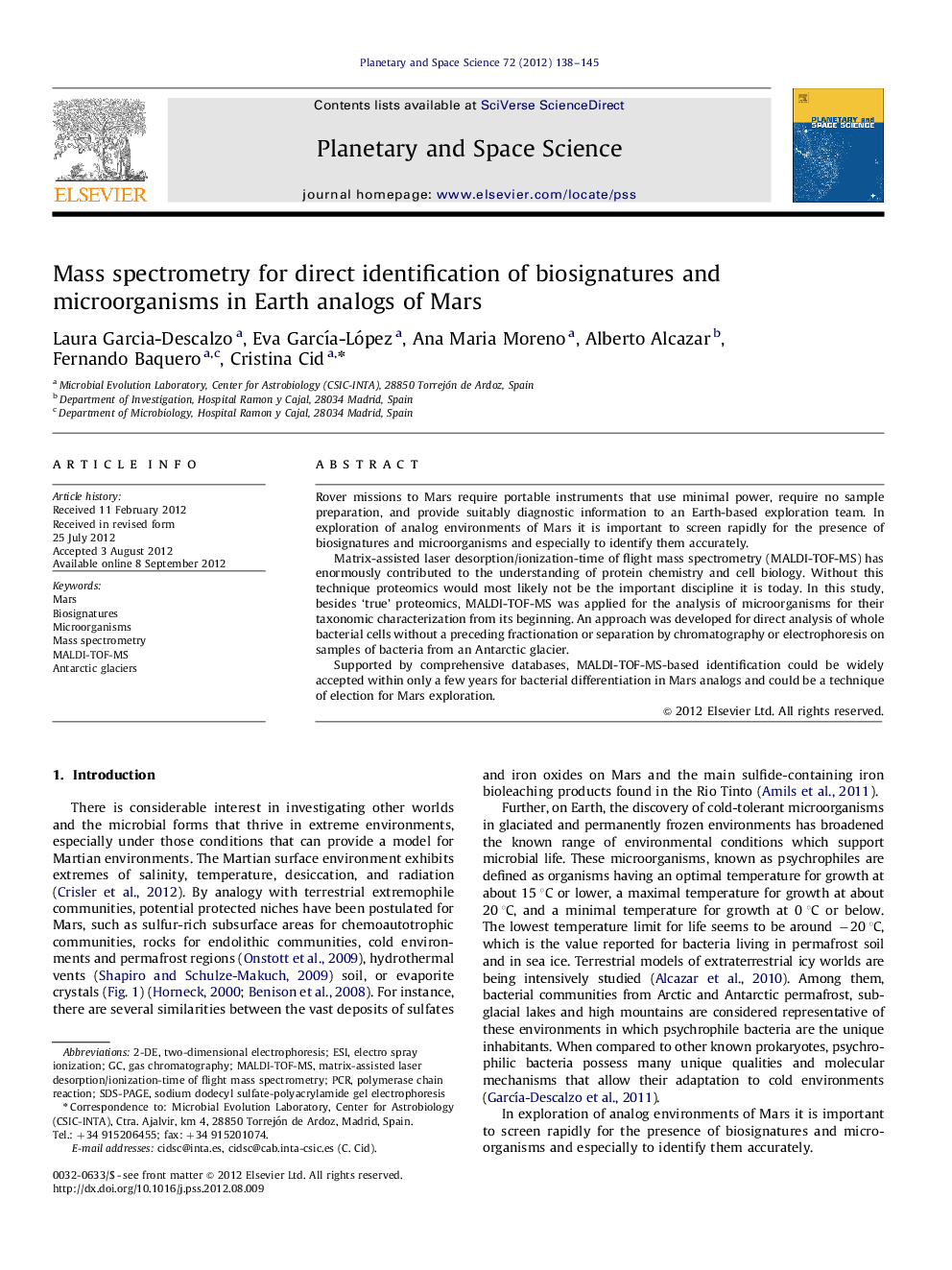| Article ID | Journal | Published Year | Pages | File Type |
|---|---|---|---|---|
| 1781375 | Planetary and Space Science | 2012 | 8 Pages |
Rover missions to Mars require portable instruments that use minimal power, require no sample preparation, and provide suitably diagnostic information to an Earth-based exploration team. In exploration of analog environments of Mars it is important to screen rapidly for the presence of biosignatures and microorganisms and especially to identify them accurately.Matrix-assisted laser desorption/ionization-time of flight mass spectrometry (MALDI-TOF-MS) has enormously contributed to the understanding of protein chemistry and cell biology. Without this technique proteomics would most likely not be the important discipline it is today. In this study, besides ‘true’ proteomics, MALDI-TOF-MS was applied for the analysis of microorganisms for their taxonomic characterization from its beginning. An approach was developed for direct analysis of whole bacterial cells without a preceding fractionation or separation by chromatography or electrophoresis on samples of bacteria from an Antarctic glacier.Supported by comprehensive databases, MALDI-TOF-MS-based identification could be widely accepted within only a few years for bacterial differentiation in Mars analogs and could be a technique of election for Mars exploration.
Graphical AbstractFigure optionsDownload full-size imageDownload high-quality image (389 K)Download as PowerPoint slideHighlights► We study biosignatures and microorganisms in Earth analogs of Mars. ► Description of general methods for identification. ► MALDI-TOF-MS is used for direct identification of biosignatures and whole microorganisms. ► Comparison with 2-DE followed by MALDI-TOF-MS. ► These technologies could be relevant in Mars exploration.
